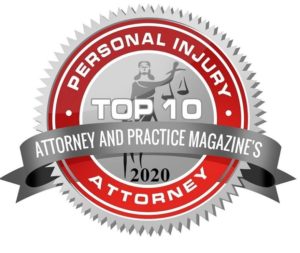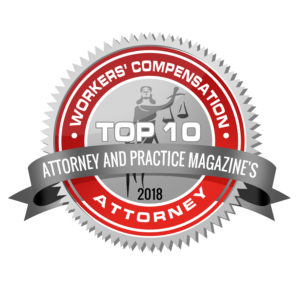Getting injured is something we’ve all experienced in life to varying degrees. Hopefully the situations are minor and resolve quickly. When you’re injured during work, there’s added anxiety as you wonder if your Employer is doing the right thing. Although this isn’t a full breakdown, here are some key points they need to follow.
- Let you seek medical treatment

If it’s an emergency: either have 911 called or have a coworker take you to a nearby emergency room immediately. No one wants to bleed out because they were filling out forms.
If it’s not an emergency: choose one of the designated providers and call their office to make an appointment. Every business in Colorado has to provide you with a list of doctors who are approved to treat your work injuries. This list is usually found in a break room next to other state-mandated posters. They also have to provide this list to you within seven days in writing. If they fail to do so in either situation, they may forfeit the right to choose your doctor.
- Report your injury to their insurance
If it’s a fatal injury or one in which three or more employees were hurt, they must report it within 24 hours. In all other situations, they have 10 days to report. It doesn’t matter how small the injury is, your employer has a duty to tell their insurance.
Do not let them talk you out of reporting. We’ve seen several clients with deep regret who were fed empty promises of “we’ll take care of you.” It creates several problems that can be avoided.
This duty to report the injury also extends to you. You must notify management or ownership about the injury in writing within 10 days as well. Failing to do so does not “kill” your claim, but it’ll certainly make things harder.
- File a Position Statement
This form is something they send where they either admit or deny responsibility in the claim. This is actually the responsibility of the workers’ compensation insurance carrier, but in a WC claim, they are basically on the same side as your employer and are collectively called the “respondents.” You are the “claimant.”

This determination isn’t necessarily about liability; rather, it’s primarily based on whether you were in the “course and scope” of work at the time. They could also deny the claim if they believe it was a pre-existing injury, further investigation is required, or your employer doesn’t have insurance.
If the carrier accepts your claim, they’ll file a “General Admission of Liability.” This is great news, but don’t be fooled – this is just the first hurdle. If they deny the claim, they’ll file a “Notice of Contest.” In either case, now is a great time to consult an attorney who specializes in work comp to get an idea of what steps are next.
- Other Ongoing Duties
Your employer should communicate with you and their insurance to the extent required to help manage the claim and your work duties. They’ll also cooperate with the insurance company during the investigation of the injury. This will include gathering evidence, talking to witnesses, taking your statement, and improving business practices in order to avoid a similar incident in the future.
Although not required, it’s in your best interest to collect your own bits of evidence. Take photos if you can, get coworker testimony, record your recollection of accident, and follow doctor orders. Cases can be won or lost in these early stages, so it’s important to take things seriously from the beginning.
- Final Tips
This article only scratches the surface of the early days of a claim. There are other important factors that can come immediately into play: lost wages, modified duty offers, drug testing, time missed for appointments, a job site analysis, nurse case management, and much, much more.
Depending on the circumstances surrounding the incident, you may have more than one claim to pursue. For example, were you driving while working and got rear-ended? Were you off-site and fell on ice? Don’t leave benefits behind.
 As a general rule, only provide information relevant to the claim. The insurance carrier will take as much information as they can get and will often use it against you as a basis to deny the claim. So those chiropractic sessions you had last year doesn’t mean your current broken ankle should be denied.
As a general rule, only provide information relevant to the claim. The insurance carrier will take as much information as they can get and will often use it against you as a basis to deny the claim. So those chiropractic sessions you had last year doesn’t mean your current broken ankle should be denied.
You can (and probably should) get medical opinions outside the claim, but this can be a tricky and expensive process if you’re not careful. You don’t want to bill personal insurance on an admitted claim. Our office handles these all the time and have built up a reliable network of medical professionals that specialize in injury claims.
Situations like that are why you should get an attorney involved early. Most injury attorneys work on a contingency fee basis, which means they only get paid a percentage on benefits received through the claim. FWI Legal isn’t paid by the hour and we don’t have a retainer. What does that all mean?
It means we’re all motivated by strong case management and outcomes. Therefore, the earlier we can get in and make sure Respondents are acting appropriately, the better it is for your case long-term. Some damage is irreversible; this is your shot to get things right from the beginning.
Getting injured is scary from a physical, emotional, and financial perspective. The good news is there are people and resources here to get you through this difficult time. We offer free consultations and would love to walk you through this complex process.



























